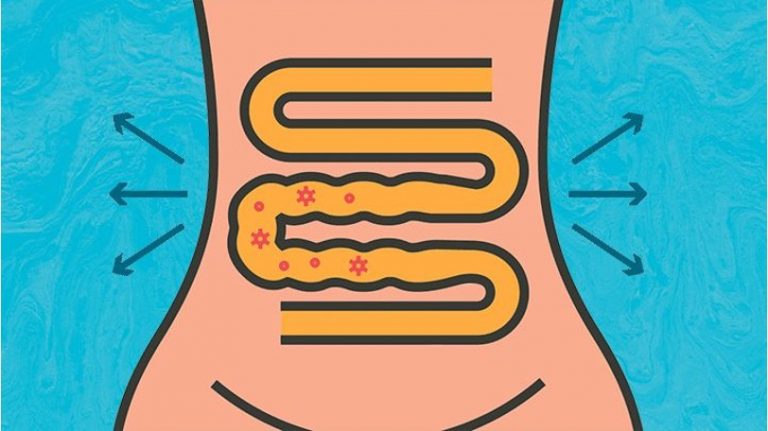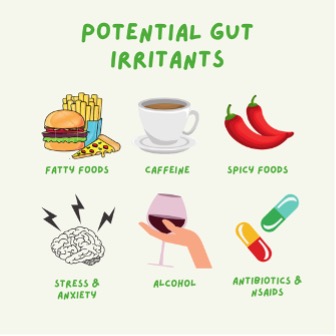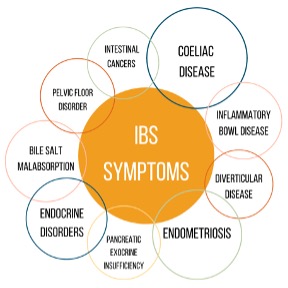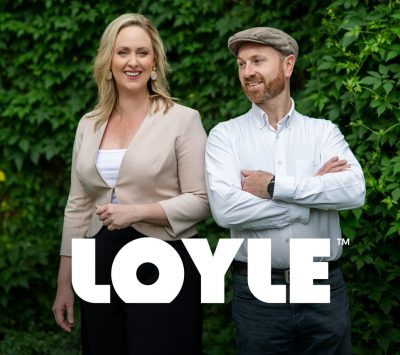Technically, April was IBS awareness month, but as we didn’t get a chance to speak about IBS in our last newsletter we’re going to shine a light on it in May! Irritable Bowel Syndrome (IBS) is an intestinal disorder that is characterised by a collection of symptoms.
IBS is quite a common condition, affecting between 7 and 15% of the global population and occurring more frequently in women [2,3]. However, a lot of IBS actually goes undiagnosed which can lead to a poorer quality of life for the individuals and can conjure up feelings of anxiety and frustration with being unable to find effective coping strategies.
We actually don’t know what causes IBS and why some people’s guts appear to be far more sensitive than others. We also don’t have any pathophysiological tests that can be used to confidently diagnose IBS. Instead, medical Doctors must assess the frequency and severity of certain symptoms against a criteria and carry out other investigations to rule out other possibilities.
Common symptoms of IBS include:
- Abdominal pain
- Altered bowel habits (diarrhoea, constipation, or a combination of both)
- Bloating
- Excessive passage of wind
- Distension of the abdomen
It is actually quite normal to experience some of these symptoms occasionally. The image below outlines some potential gut irritants that may cause symptoms similar to IBS like bloating, altered bowel habits and abdominal pain if consumed in large doses.
However, if you are experiencing the IBS symptoms and they are affecting your quality of life and/or becoming unmanageable please consult your doctor before undertaking any significant lifestyle changes. There are a few other conditions that share similar symptoms to IBS that need to be screened and tested for before you can be diagnosed with IBS and start your treatment journey. These conditions are demonstrated in the picture below.
If you have been diagnosed with IBS by your doctor, you are eligible for an Enhanced Primary Care (EPC) plan which will give you rebated sessions with a dietitian (or other allied health professionals). As dietitians, we will work with you to determine which FODMAPs trigger your IBS symptoms. FODMAPs are different types of carbohydrates found in a variety of different foods and are poorly absorbed in people with IBS. We take you through a 3-staged process to determine which FODMAPs you react to and in which quantities which will allow you to liberalise your diet and enjoy foods without having to worry about whether they will trigger symptoms.
If you have been diagnosed with IBS and are ready to determine what your triggers are, get in contact with Louise or Tessa to book in for an initial consultation!
If you are interested in quick and practical tips, recipes, plus insightful food and nutrition articles click here to find Louise on Facebook and click here to find Tessa on Facebook.
Healthy regards,
Louise & Tessa
Louise
0410 839 074
louise@adeptnutritioncare.com
Tessa
0402 234 478
tessafunk.nutrition@gmail.com






